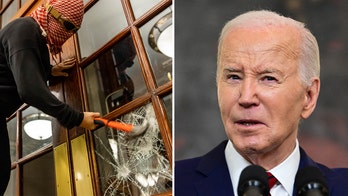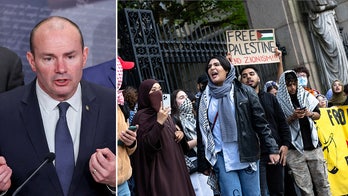What you need to know before you shop on Black Friday
Slickdeals.net consumer expert Regina Conway shares tips and deals on 'Fox & Friends.'
Massachusetts might be one of three states that don’t let stores open on Thanksgiving but it hasn’t stopped some shoppers from camping outside this year in anticipation of Black Friday deals.
So-called ‘‘blue laws’’ prohibit big box stores and other retailers from opening their doors until Friday. Neighboring Maine and Rhode Island have similar restrictions.
But to 26-year-old Melvin Hernandez, it doesn’t matter. He’s already lined up to snag a spot outside a Best Buy store in Watertown, Mass.
The maintenance technician told The Associated Press he was set on snagging a heavily discounted 50-inch TV, and also had his eye on an Xbox One.
Business groups have long said the laws are unnecessary barriers during an era of 24-hour online retailers, but some shoppers, workers and even retailers say they appreciate one day free of holiday shopping.
Blue laws were once widespread throughout the country and are thought to date back to Colonial times, although some of the current regulations in Maine were instituted in the 1960s. The name may be derived from an 18th-century usage of blue meaning "rigidly moral," according to the Encyclopedia Brittanica.
The rules vary among the states. Retailers smaller than 5,000 square feet can operate in Maine, for example.
Thanksgiving and Christmas are the main holidays affected in all three states, but in Massachusetts, blue laws also prohibit stores from opening on the mornings of Columbus and Veterans Day without state permission. Easter and New Year's Day are also sometimes included.
But for the stores that are open, retailers are courting customers to shop. About 69 percent of Americans, or 164 million people, intend to shop at some point during the five-day period from Thanksgiving to Cyber Monday, according to the National Retail Federation trade group.
Black Friday is expected to remain the busiest day with about 115 million people expected to shop.
The Associated Press contributed to this report.





